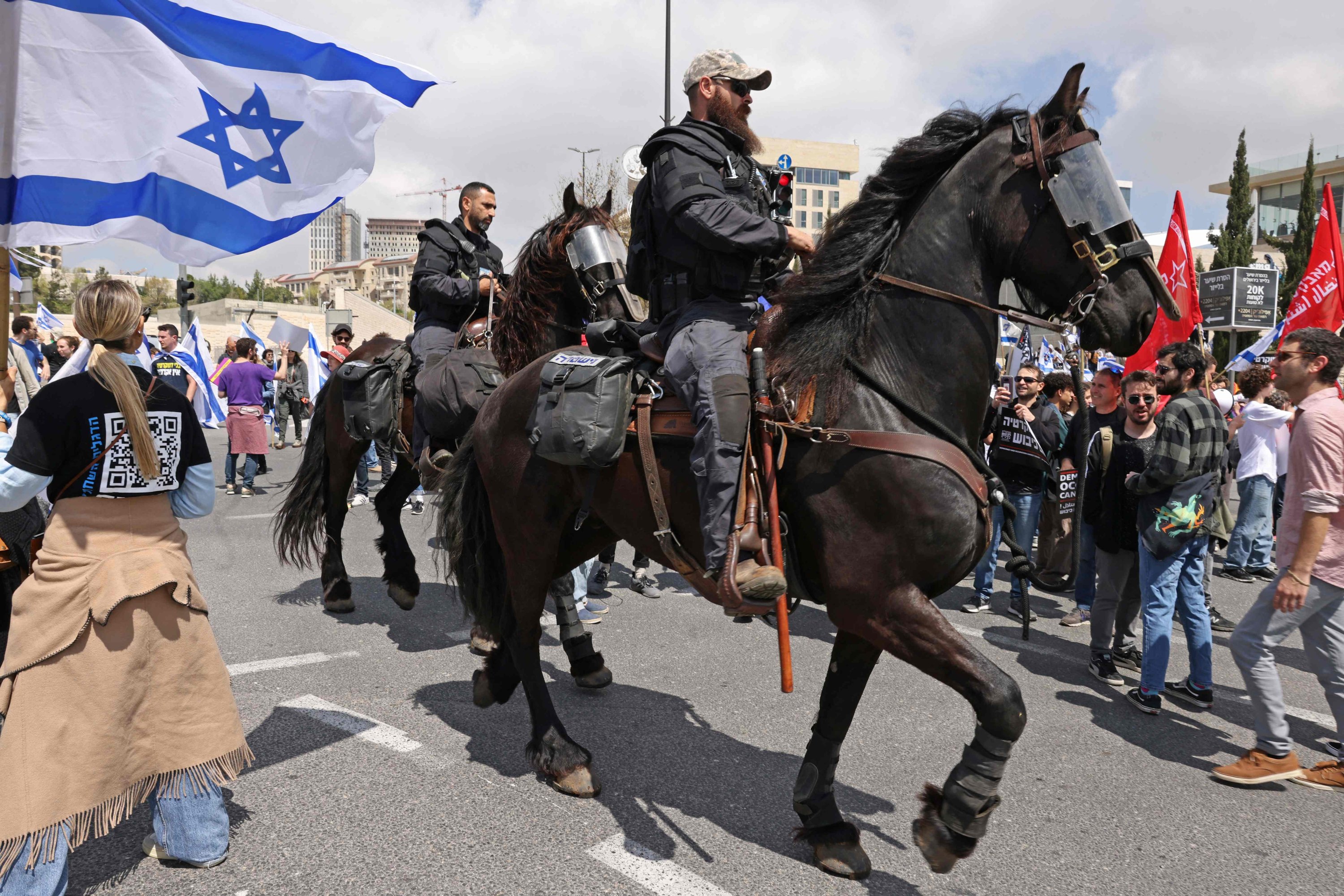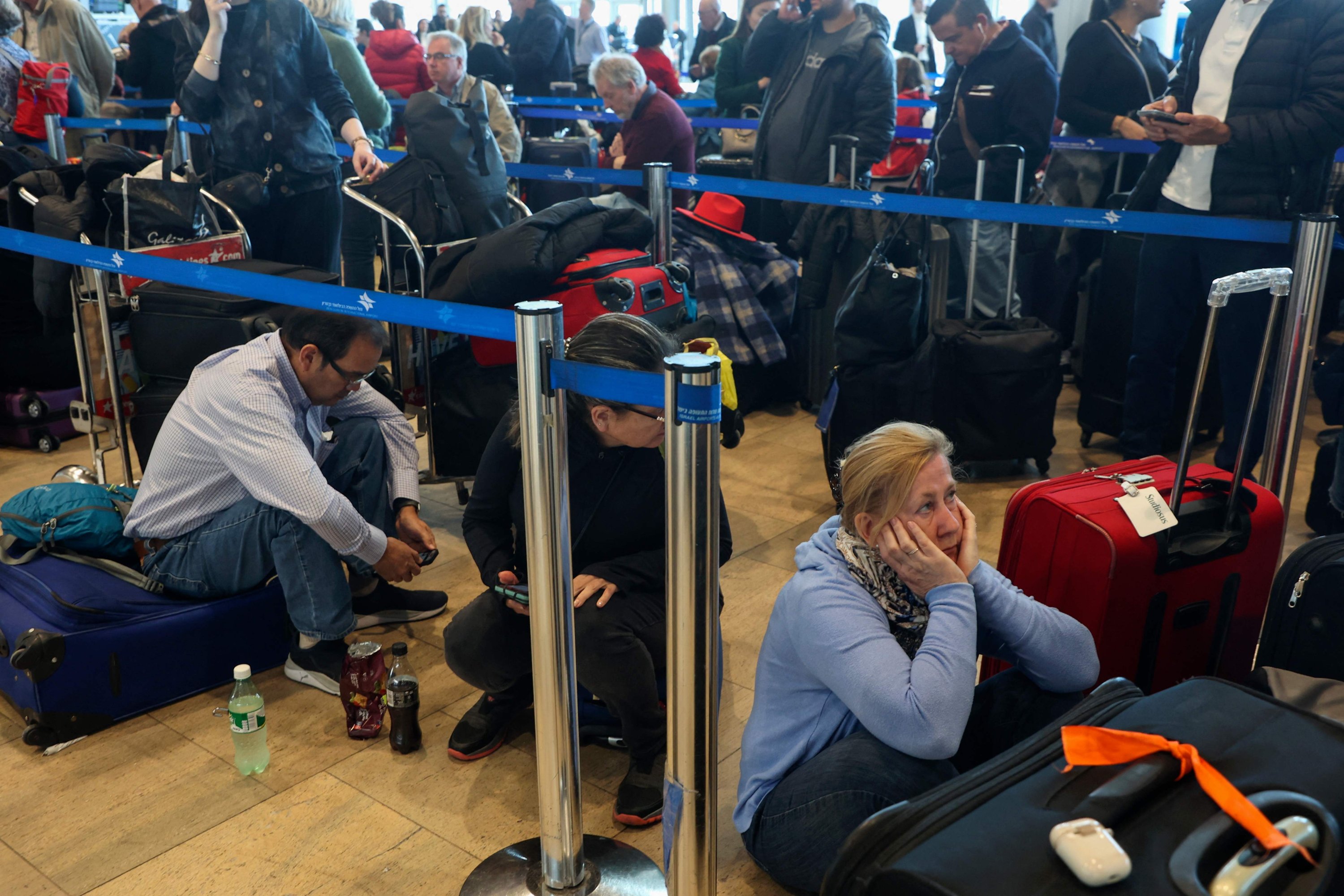© Turkuvaz Haberleşme ve Yayıncılık 2025
Israel faced massive overnight protests as opposition against Prime Minister Benjamin Netanyahu's plan to overhaul the judiciary faced mounting opposition Monday.
The growing resistance to the plan came hours after tens of thousands of people burst into the streets around the country in a spontaneous show of anger at Netanyahu’s decision to fire his defense minister after he called for a pause on the overhaul. They lit bonfires on Tel Aviv's main highway, closing the throughway and many others throughout the country for hours.
The growing movement plunged Israeli Prime Minister Benjamin Netanyahu's coalition into chaos.
Netanyahu had been expected to make a televised statement Monday morning announcing the plans, which he says are needed to restore balance to the system of government but that critics see as a threat to democracy, had been suspended.
Amid reports his nationalist-religious coalition risked breaking apart, the statement was postponed while Netanyahu met heads of the parties.
Justice Minister Yariv Levin, who has been leading the process, said that as a member of the ruling Likud party he would respect whatever decision Netanyahu reached.
"A situation in which everyone does as they wish is liable to bring about the instant fall of the government and collapse of Likud," he said in a statement. "We must all strive to stabilize the government and coalition."
Tens of thousands of protesters returned to the streets in Tel Aviv and Jerusalem, meanwhile, many waving the blue and white Israeli flags that have become an emblem of the protests.
Earlier, an official in the ruling Likud party and another source closely involved in the legislation said Netanyahu would suspend the overhaul, which has ignited some of the biggest street demonstrations in Israel's history and drawn a rare intervention by the head of state.
"For the sake of the unity of the people of Israel, for the sake of responsibility, I call on you to stop the legislative process immediately," President Isaac Herzog said on Twitter.
The stark warning by Herzog, whose function is largely ceremonial and is supposed to stand above politics, underlined the alarm caused by the proposals, which would tighten political control over judicial appointments and allow parliament to overrule the Supreme Court.
It followed a dramatic night of protests in cities across Israel following Netanyahu's announcement that he had dismissed Defense Minister Yoav Gallant for opposing the plans.
A day earlier, Gallant had made a televised appeal for the government to halt its plans, warning that the deep split it had opened up in Israeli society was affecting the military and threatening national security.
With the army reinforcing units in the occupied West Bank after a year of unrelenting violence that has killed more than 250 Palestinians and more than 40 Israelis, the removal of the defense minister fed accusations that the government was sacrificing the national interest for its own.

No-confidence motion defeated
During furious scenes in the Knesset early Monday, opposition members of parliament attacked Simcha Rothman, the committee chairman who has shepherded the bill, with cries of "Shame! Shame!"
While the drama unfolded, Finance Minister Bezalel Smotrich presented the 2023-24 budget to parliament for a preliminary vote later in the day.
An opposition no-confidence motion was defeated but in a sign of the tensions within the ruling coalition, National Security Minister Itamar Ben-Gvir, who heads one of the hardline pro-settler parties, called for the overhaul to go ahead.
"We must not stop the judiciary reform and must not surrender to anarchy," he tweeted.
Counterdemonstrations by right-wing supporters of the reforms were expected to be held outside the Knesset in Jerusalem in the evening.
The shekel, which has seen big swings over recent weeks as the political turbulence has played out, fell 0.7% in early trading before recovering ground as expectations grew the legislation would be halted.
By late morning, shares in Tel Aviv were up around 2% and the shekel had risen around 0.8%.

As opposition spread, the head of the Histadrut labor union called for a general strike if the proposals were not halted.
Take-offs from Ben Gurion airport were suspended, while Israel's main seaports, banks and hospitals and medical services were set to strike. Branches of McDonalds were also closed as the protests extended across the economy.
"Bring back the country's sanity. If you don't announce in a news conference today that you changed your mind, we will go on strike," Histadrut chairman, Arnon Bar-David said.
While the government says the overhaul is needed to rein in activist judges and set a proper balance between the elected government and the judiciary, opponents see it as an undermining of legal checks and balances and a threat to Israel's democracy.
Netanyahu, on trial on corruption charges that he denies, has so far vowed to continue with the project.
